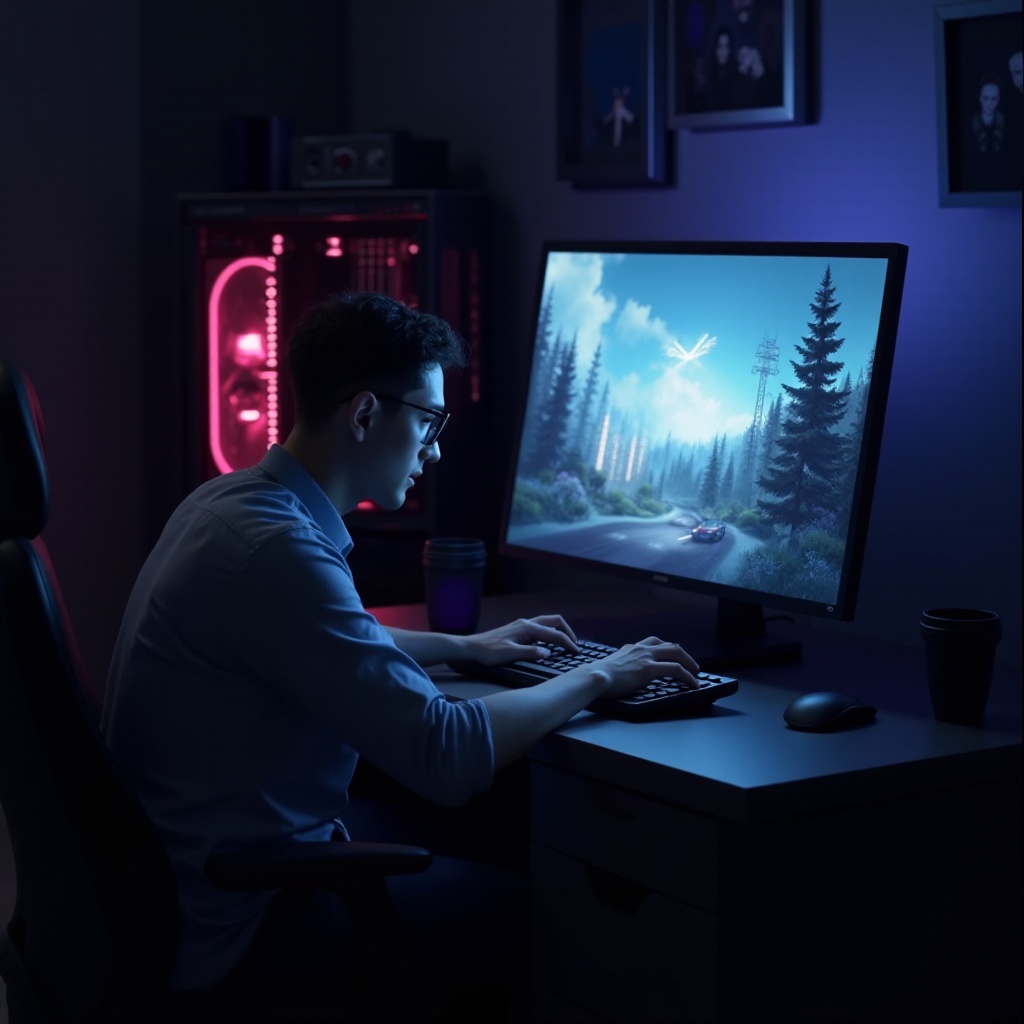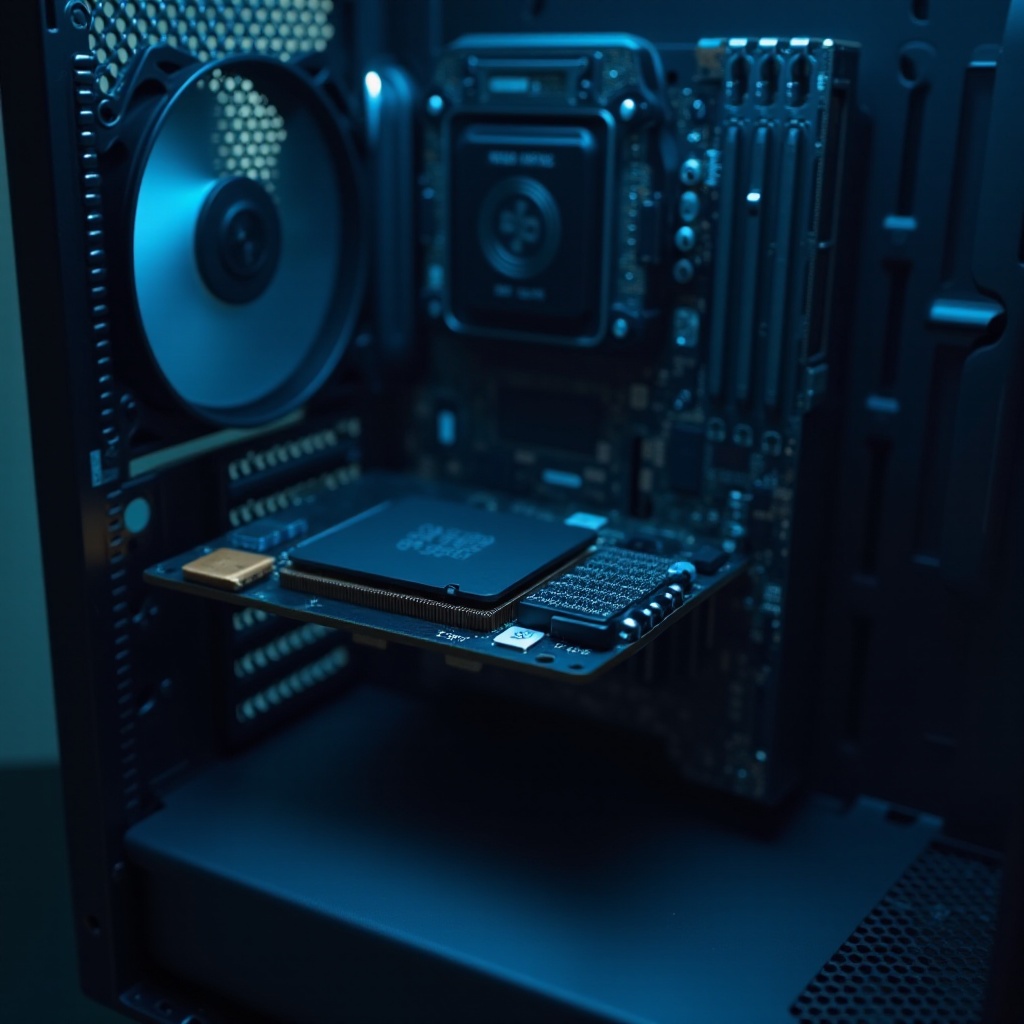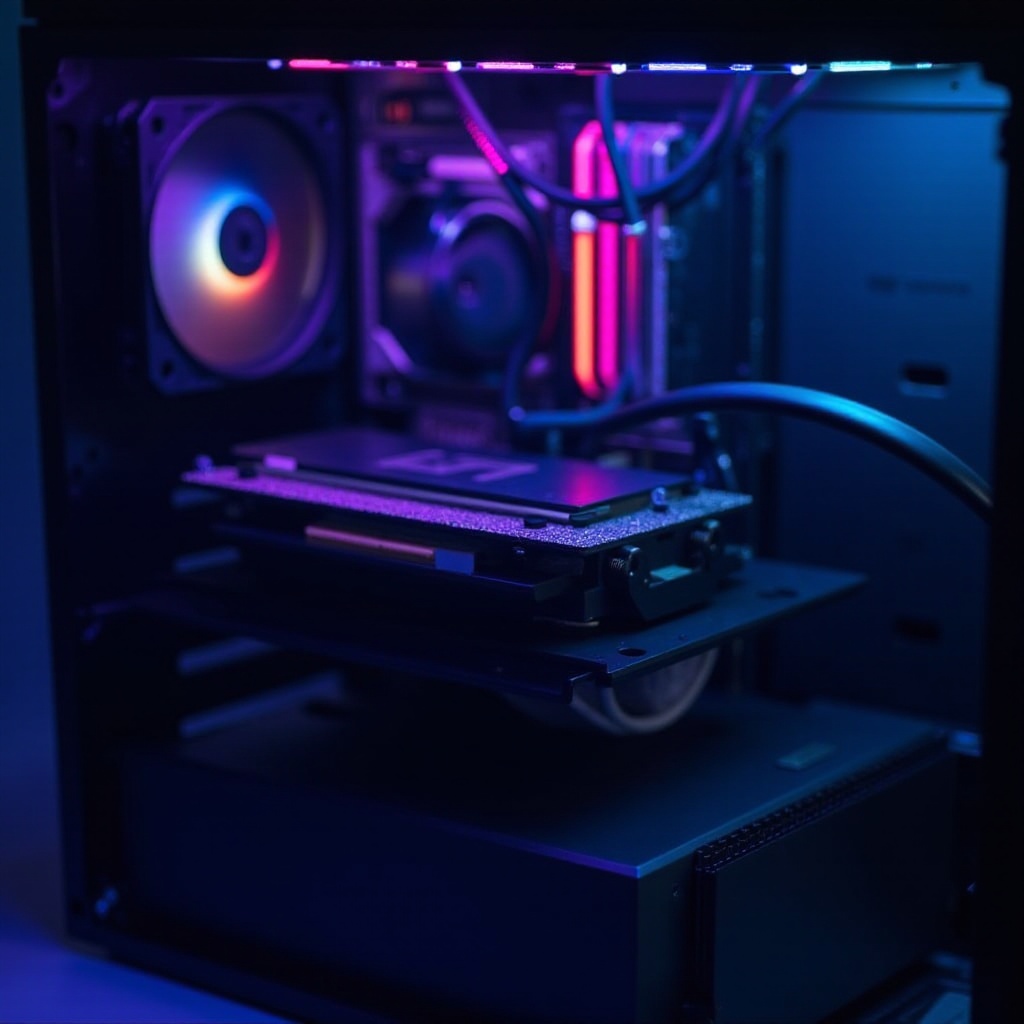Introduction
Experiencing frequent game crashes can be incredibly frustrating, especially when you’re in the middle of a thrilling moment. If your computer keeps crashing when you play games, it can completely ruin your gaming experience. Not only does it disrupt your flow, but it can also potentially harm your system. Let’s explore the common reasons behind this issue, the steps to diagnose the problem, and how to fix both software and hardware-related issues.

Common Reasons for Game Crashes
Game crashes can stem from a variety of issues ranging from software glitches to hardware malfunctions. Knowing these common reasons can help you pinpoint the problem more accurately:
-
Overheating: One of the most common causes of game crashes is overheating. Graphics-intensive games make your GPU work harder, leading to increased temperatures. If your cooling system isn’t effective, this can cause your computer to crash.
-
Outdated Drivers: Graphics drivers need to be up-to-date to handle the demands of modern games. Using outdated drivers can lead to crashes.
-
Insufficient RAM: If your computer doesn’t have enough RAM, it might struggle to perform multiple functions simultaneously, leading to game crashes.
-
Corrupted Game Files: Sometimes, the game files may get corrupted or incomplete during installation, which can cause crashes.
-
Software Conflicts: Running other software programs in the background can conflict with the game, leading to crashes.
Diagnosing the Problem
Now that you understand the common reasons, it’s crucial to diagnose your specific problem correctly. Here’s how you can do that:
-
Check Event Viewer: Windows’ Event Viewer logs every crash that occurs. Open it and check for error messages associated with the crashes. This can provide clues on what’s causing the issue.
-
Monitor Temperatures: Use software like Core Temp or MSI Afterburner to monitor your CPU and GPU temperatures. If you notice high temperatures, overheating could be the issue.
-
Check Drivers and Updates: Ensure all your drivers and system software are up-to-date. Programs like Driver Booster can help you identify and update outdated drivers.
Diagnosing your problem correctly will guide you to the next step—fixing the issue.
Fixing Software-related Issues
Once you have identified that the problem lies within the software, here are steps to resolve these issues:
- Update Drivers:
- Check for updates from your GPU manufacturer’s website (NVIDIA, AMD, or Intel).
-
Install the latest graphics driver updates.
-
Verify Game Files:
-
On Steam, right-click on the game, select ‘Properties,’ and navigate to the ‘Local Files’ tab to verify the integrity of game files.
-
Adjust Game Settings:
-
Lower your in-game graphics settings. Reduce attributes like shadows, textures, and resolution, and see if that helps.
-
Close Background Applications:
- Use Task Manager to close unnecessary applications running in the background to free up system resources.
Addressing these software-related issues ensures your system is running optimally without conflict.
Addressing Hardware Problems
When software fixes don’t work, the problem might be hardware-related. Here’s how to address these issues:
- Improve Cooling:
- Dust out your computer’s interior.
-
Invest in better cooling solutions like additional case fans or liquid cooling systems.
-
Check Hardware Integrity:
- Perform hardware diagnostics using built-in tools or third-party software to check the integrity of your hard drive, RAM, and GPU.
-
Replace any faulty hardware as needed.
-
Upgrade Components:
-
If your system is old, upgrading components such as your GPU, adding more RAM, or getting a faster hard drive (SSD) could make a significant difference.
-
Avoid Overclocking:
- If you’ve overclocked your hardware, revert it to default settings as overclocking can lead to instability.
By addressing these hardware issues, you’ll help ensure that your PC handles gaming demands more effectively.

Optimizing Your PC for Gaming
To enhance your overall gaming experience and prevent future crashes, here are some optimization tips:
- Update Your Operating System:
-
Ensure your Windows or other operating system is up-to-date to benefit from the latest security patches and performance improvements.
-
Optimize Game Settings:
-
Adjust your game settings to better match your system capabilities.
-
Manage Power Settings:
-
Set your PC to high-performance mode to ensure it uses all available resources.
-
Clean Up Your System:
- Regularly clean up your hard drive using disk cleanup tools.
- Uninstall irrelevant or redundant software.
These optimizations can offer a smoother gaming experience and prevent potential issues from arising.

Conclusion
Dealing with computer crashes during gaming sessions can be frustrating, but by understanding the reasons and how to fix them, you can avoid these interruptions and get back to enjoying your favorite games.
Frequently Asked Questions
How can I tell if my computer is overheating?
You can tell if your computer is overheating by monitoring the CPU and GPU temperatures using software tools like Core Temp or HWMonitor. Consistently high temperatures (above 85°C for prolonged periods) can indicate overheating.
Should I update all drivers or just the graphics driver?
While keeping your graphics driver updated is crucial for gaming, it’s also important to update all your drivers (motherboard, sound, network). Driver management tools can help track which drivers are outdated and need updating.
Is it risky to overclock my PC to improve gaming performance?
Overclocking can improve performance but comes with risks such as increased heat output and potential instability. Ensure you have adequate cooling and follow safe overclocking practices to minimize risks.